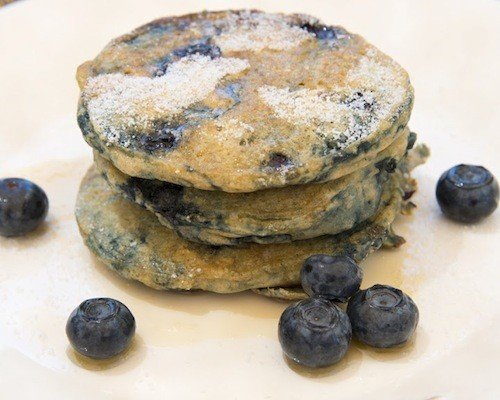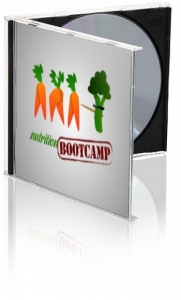Proclaim the Joys of Blueberry Month with Communicating Food for Health!
 Did you know that July is Blueberry Month? To celebrate, we're sharing one of the most popular blueberry articles from our exclusive member library. To ensure that you're not missing out on the latest and greatest nutrition and health news, join our community today! Or you can evaluate the different membership programs and rates after you've read this great blueberry writeup by Sara Laidlaw, MS, RD...No single food can supply all the nutrients you need. For example, milk has calcium and vitamin B12, but it doesn't have any vitamin C. Oranges contain vitamin C, but they're B12 bereft! That's why you need to eat a wide variety of foods. It's also a good idea to make sure that the foods you eat are nutrient-dense. Some foods are more nutrient-dense than others, so choose wisely. In honor of Blueberry Month, we thought we'd feature these tasty, nutrient-rich berries.Meet the Blueberry!
Did you know that July is Blueberry Month? To celebrate, we're sharing one of the most popular blueberry articles from our exclusive member library. To ensure that you're not missing out on the latest and greatest nutrition and health news, join our community today! Or you can evaluate the different membership programs and rates after you've read this great blueberry writeup by Sara Laidlaw, MS, RD...No single food can supply all the nutrients you need. For example, milk has calcium and vitamin B12, but it doesn't have any vitamin C. Oranges contain vitamin C, but they're B12 bereft! That's why you need to eat a wide variety of foods. It's also a good idea to make sure that the foods you eat are nutrient-dense. Some foods are more nutrient-dense than others, so choose wisely. In honor of Blueberry Month, we thought we'd feature these tasty, nutrient-rich berries.Meet the Blueberry!
- Slow Down the Aging Process – The pigments in blueberries, called anthocyanins, have been shown to slow and even reverse age-related declines in brain function, as well as cognitive and motor performance. Other compounds in blueberries may delay the effects of vascular dementia or Alzheimer’s disease.
- Protect Your Heart – Blueberries are believed to have the potential to reduce LDL, aka “bad” cholesterol. Their antioxidants also appear to protect artery cells against damage that ultimately results in clogged arteries and an increased risk of heart attack and stroke.
- Fight Bad Bacteria – Just like cranberries, blueberries also protect the health of the urinary tract. Several substances in the blueberry may interfere with bacteria adhering to the cells that line the urinary tract.
- Improve Your Eyesight – People in Japan have imported blueberries not just for their taste, but also because they believe that blueberries improve eyesight and reduce eyestrain. The blueberry’s European cousin, the bilberry, has been studied for its potential to improve night vision and prevent cataracts as well.
Eat Your Blueberries!Whether you are eating blueberries for their myriad health benefits or just because you like their flavor, these versatile fruits can be a part of many different healthful and tasty dishes. Get inspired below...
- In the late summer, when berries are plentiful and often on sale, buy them in large quantities and freeze them. Just wash and dry the berries, lay a single row on a pan and pop them into the freezer until they are frozen solid. Then you can package them in freezer-safe storage bags in recipe portions and you are set to make your favorite blueberry recipes in the middle of winter!
- Frozen berries can be substituted for fresh berries in most recipes. It's best not to let them thaw first because their juices could turn your batter blue.
- Keep blueberries refrigerated until you're ready to use them. That's also when you should wash them -- and not one moment sooner!
- Add a half cup of blueberries to your morning bowl of cereal.
- Top low-fat frozen yogurt with a handful of blueberries.
- Stir a half cup of blueberries into plain or vanilla-flavored yogurt.
- Whip up a quick blueberry sauce to go alongside grilled chicken or pork.
- Add blueberries to your pancake or waffle batter. Serve them warm with more fresh blueberries or even a blueberry sauce.
- Have a blueberry smoothie for breakfast.
By Sara Laidlaw, MS, RDLooking for more information? Check out the member library today! Or browse through the amazing educational products in the Nutrition Education Store...

